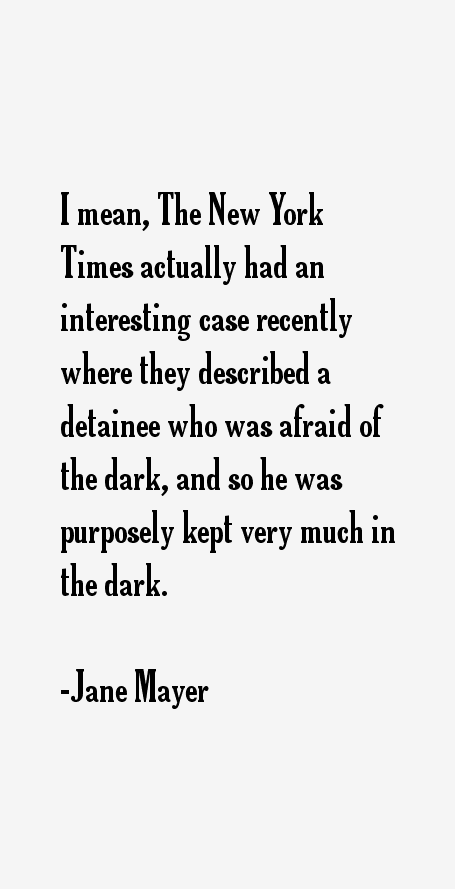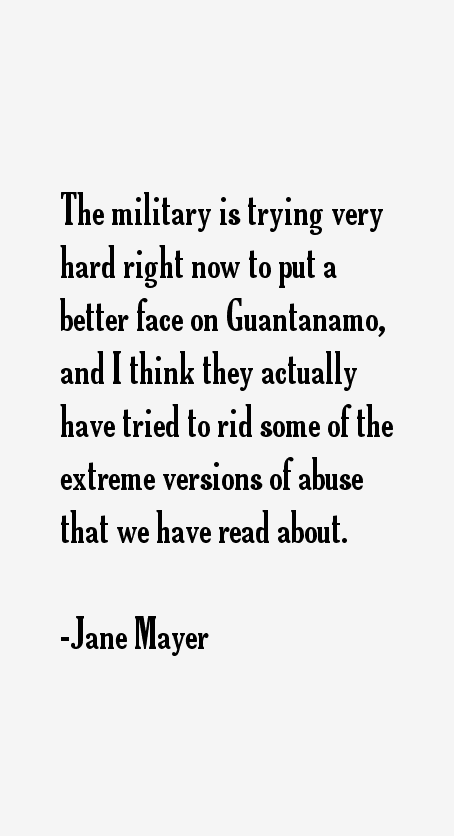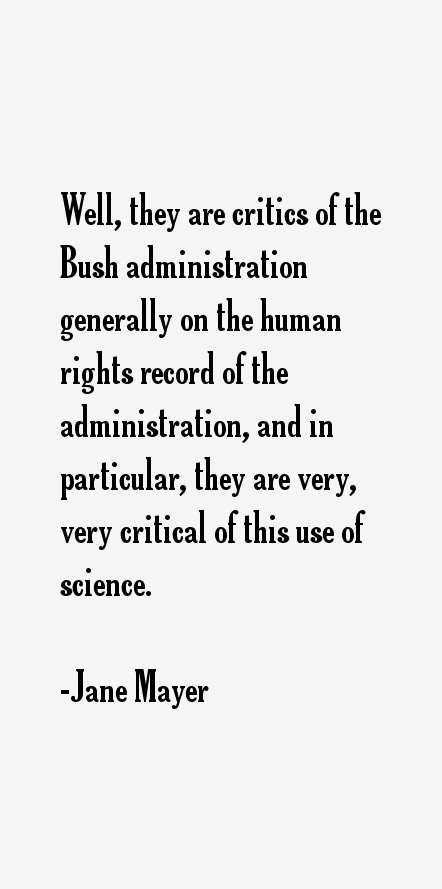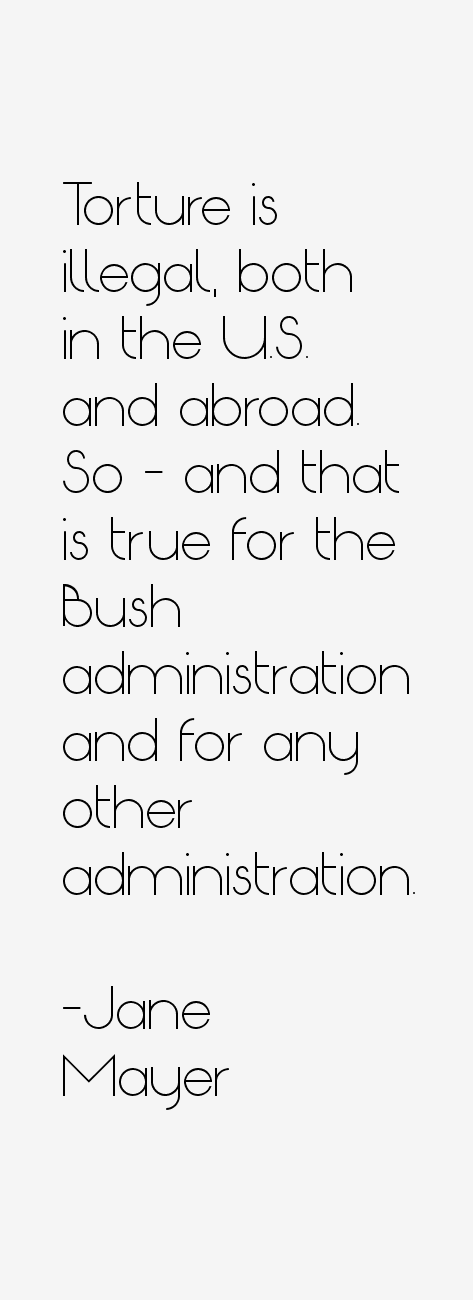Jane Mayer Quotes & Sayings
17 most famous Jane Mayer quotes and sayings (journalist). These are the first 10 quotes we have.

“And I think that what is of concern is that they seem to be bringing skills from the scientific world into the interrogation room in a way that begs a lot of questions about whether it's ethical.”
“And to me, it was interesting, some of the people I had interviewed who knew the insides to this program said that they also, to create anxiety and upset in the soldiers, they take Bibles and they trash them.”

“Ethically, I think pretty much every code of ethics for doctors suggests that they should not be in an interrogation room, particularly if there's anything coercive or abusive going on.”
“Well, yes, I mean, I think that, you know, my sources suggest that there's a lot of support for the notion that there is a lot of Koran abuse and that it was very much a systematic design, not just an aberration.”

“I mean, The New York Times actually had an interesting case recently where they described a detainee who was afraid of the dark, and so he was purposely kept very much in the dark.”
“So, it, of course, makes one wonder how many other people there might be who are completely innocent, who have been sent by the U.S. to countries where they've been interrogated, and in some instances it seems tortured.”

“The military is trying very hard right now to put a better face on Guantanamo, and I think they actually have tried to rid some of the extreme versions of abuse that we have read about.”

“The world's a small place and people are watching; and, you know, somebody disappears, the family knows and their colleagues know, and so eventually, these things do get out.”

“Well, they are critics of the Bush administration generally on the human rights record of the administration, and in particular, they are very, very critical of this use of science.”

“Torture is illegal, both in the U.S. and abroad. So - and that is true for the Bush administration and for any other administration.”
Jane Mayer Quotes Rating
No Ratings Yet
Leave A Comment
























